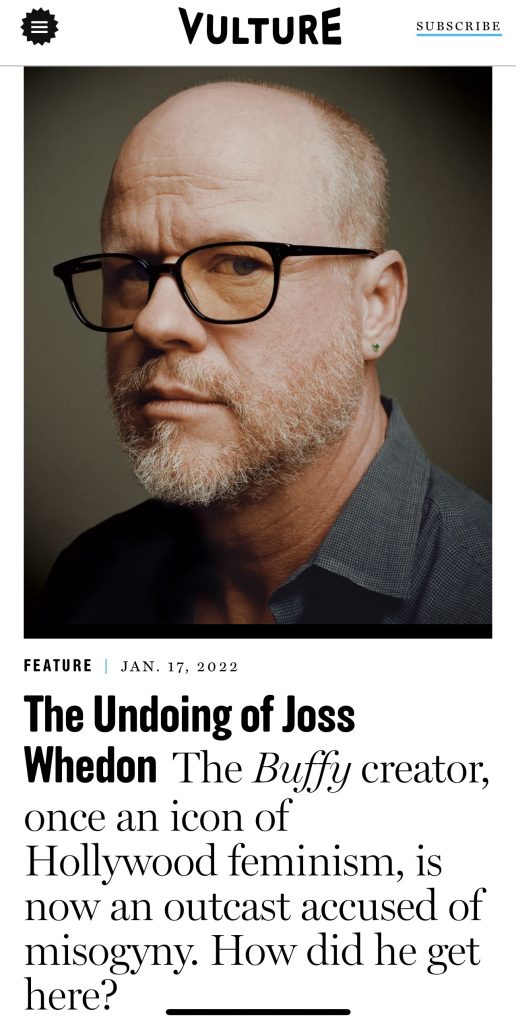Last night I read Lila Shapiro’s “Joss Whedon Exposed.” It had been described as an urgent must-read. It’s certainly long and well-written in a semi-dramatic sort of way, and seemingly thorough as far as these types of articles (i.e., saga of a reputed shitheel) tend to go.
Over the last two or three years (longer?) there’s been an emerging consensus among co-workers that Whedon, once regarded as a feminist-minded creative producer & show-runner who understood and celebrated women, has behaved in a cruel, callous, dishonorable way (including sexually), and that he’s now, to quote the “Vulture” subhead, “an outcast accused of misogyny.”
Shapiro’s piece, based in large part on an interview with Whedon that happened last spring, reiterates and expands upon these claims. The basic thrust is “Whedon, a bad man, has become a toxic figure whom many if not most producers and distributors and streamers don’t want to work with any more, but his full, harmful toxicity hasn’t been fully understood, not really, and so Whedon must continue to be lashed & shamed for these failings.”
It led me to conclude that as powerful Hollywood types go, Whedon may have behaved as badly as Kirk Douglas’s Jonathan Shields character did in The Bad and the Beautiful. (Or worse.) He may have been as cruel and exploitive as Harry Cohn, Louis B. Mayer, Daryl F. Zanuck, Jack L. Warner, David O. Selznick and other producer kingpins may have been in their day. (Or something like that.) Hollywood has long rewarded or at least not interfered with powerful abusive types for many decades, and sometimes the karma snaps back and the chickens come home to roost . And…?













